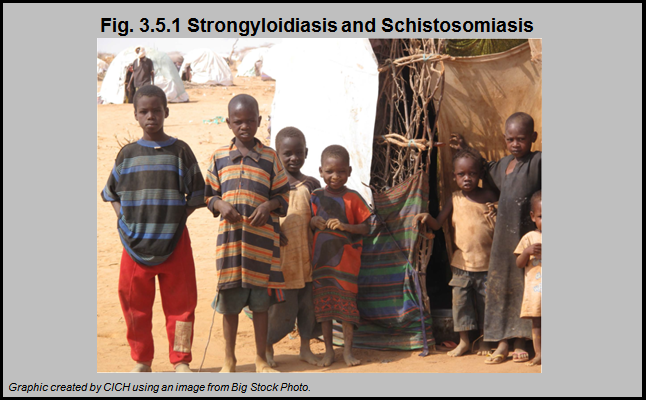Strongyloidiasis and Schistosomiasis

…continued
Strongyloidiasis is disease caused by an intestinal parasite, usually spread through contact with infected soil. Schistosomiasis is a disease also caused by parasitic worms – spread through contaminated water. These diseases can persist for years to decades and consequently can cause serious suffering or death long after an immigrant resettles in a new country.
The burden of strongyloidiasis appears greatest in refugee populations originating from Southeast Asia and Africa, whereas the burden of schistosomiasis is greatest in refugee populations from Africa. Detection of strongyloidiasis or schistosomiasis is limited because infection can persist below the clinical detection level and because detection by stool microscopy is difficult. Serologic blood testing substantially enhances diagnostic sensitivity for these intestinal parasites.
Many immigrant and refugee children may have been exposed to intestinal parasites either in their country of origin or during time spent in refugee camps. Most types of intestinal parasites will resolve naturally once a child or adult has left the region where the parasites are commonly found, but two will not. Refugee children and youth, in particular, are at potential risk for strongyloidiasis and schistosomiasis. continued…
Implications
Canadian Immigrant Health Guidelines recommend that a blood test for strongyloidiasis should be offered to all recently arrived African and Southeast Asian refugees and a blood test for schistosomiasis should be offered to all recently arrived African refugees.
For the Canadian Immigrant Health Guidelines click here.
